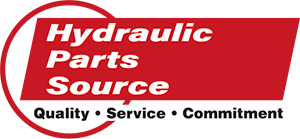Filter Management: Preventive Maintenance Schedule vs. Monitoring
Of all the elements that are needed to keep hydraulic systems running smoothly and free of contamination, filters are known to be one of the most important to maintain – but they often are the first to be neglected.
A maintenance plan that prioritizes filter changes, repairs, and monitoring can keep hydraulic systems running at optimum efficiency, mostly because it puts a process in place to keep these vital components in check.
Managing hydraulic filtration regularly will help to avoid contamination-related system failure and create conditions ideal for:- Longevity
- Limiting downtime
- Reducing replacement costs for expensive pumps, valves, and actuators
To assure that filter upkeep doesn’t fall through the cracks, consider these two options:
- Developing a preventative schedule of maintenance
- Sticking to a strict monitoring routine
Option 1: Scheduling Preventive Maintenance
Following a schedule of filtration maintenance tasks is one way to prevent expensive systemic problems, and there are different levels of preventive action that can be defined by the type or scope of the hydraulic machinery.Any action applied to filtration such as inspection, servicing, or replacement that is performed as part of a scheduled plan rather than as a response to a breakdown can be considered preventive maintenance.
Managing a preventive maintenance program starts with creating simple processes that are built into business operations.
A preventive program may include:- Investigation of fluid health and appropriate lubrication
- A strategy for adding critical filter locations to trap more particles
- A schedule for fluid and filter changes
- Filter change-out according to pressure differential, adding a pressure gauge or indicator
- Installation of electrical monitoring devices of filter differential pressure or analog transducers to log trends
Any preventive maintenance program should be clearly defined with well-documented maintenance activities, and the plan should be regularly reviewed and adjusted if necessary, for instance if filters are found to need checked and replaced even more frequently than the original plan suggests.
Option 2: Routine Filter Monitoring
Continuous monitoring of the filter elements in a hydraulic system can provide valuable clues to the performance of the filter and the condition of the system.Monitoring can be part of a strategic preventive maintenance plan or can be used as its own reactive filter management tool.
Common filter locations to monitor include:- Pressure Lines - These filters typically range from 2-8 microns depending on the sensitivity of the components downstream
- Return Lines - Assuring that the oil in the hydraulic reservoir is clean, and that it can run through fine (typically 10 microns) filter media with sufficient pressure and a relatively low flow velocity, maintains a high degree of filtering efficiency
- Off-line - Enabling continuous, multi-pass filtration in a circuit at a controlled flow velocity with water removal filters and heat exchangers also results in high filtering efficiency
Hydraulic Filter Management: Worth the Time and the Work
Creating a maintenance plan that prioritizes filter changes, repairs, and monitoring may seem like a lot of time spent on process and upkeep, but it is a necessary job for the health of hydraulic systems.Routine maintenance costs are just a drop in a bucket compared with the costs of hydraulic system repairs or part replacements that can result from poor filter efficiency or contamination.
Whether it’s developing a preventative schedule of maintenance, or sticking to a strict monitoring routine, preparing a process for filter maintenance is a worthy cause that will improve the overall life and efficiency of hydraulic equipment.Having a plan can keep these processes in check so filtration issues don’t go unnoticed and hydraulics systems stay running like the well-oiled machines they should be.
Hydraulic Parts Source is a leading fluid power remanufacturer, and we’re ready to serve you. Contact us today to discuss forming an alliance by calling (888) 477-7278 or get a quote by emailing sales@hydparts.com.

